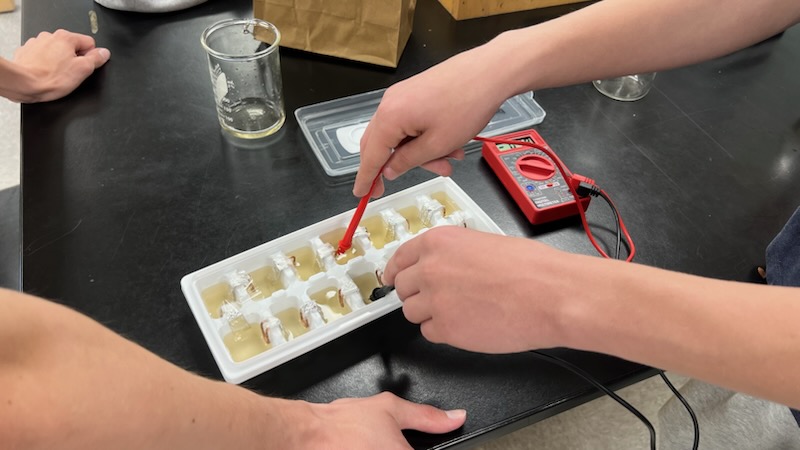When the end of the semester draws near and finals begin, the temptation to cheat is greater than ever. As students sweat over their papers and teachers try to get in those last grade changing points, those who are not adequately prepared to meet the challenge often turn to cheating to solve their problems.
“The reason that most students cheat is because they don’t study enough and they decide to cheat to pass the class,” Jon Wills, ’02, said. “Also, the pressure put on students from their parents often results in cheating in academic classes.”
According to the 1997 Who’s Who annual poll, 89% of students in the nation attend a school where cheating is common and 58% say that it would be easy to obtain test questions or answers at their school. Almost all students (94%) who have cheated were not caught and the five percent who were did not receive punishment. Some students however do not see cheating as an option.
“The consequence for cheating is too high for me to risk it,” Johanna Iest, ’05, said. “I’ve never seen any reason to cheat. If I don’t know the answer, then I deserve to get it wrong.”
Students who have experienced the consequences of cheating first hand tend to never want to cheat again.
“I cheated once on a test in third grade and got caught,” Cale Livingston, ’04, said. “It was so embarrassing, I would never cheat again. Plus now I don’t have to because I’m so smart.”
Cheating is common in all types of academic students, including 76% of the nation’s top teens. According to Principal Gary Schultz, students do not see cheating for what it actually is. It is no surprise to Schultz that two-thirds of those who cheated did so because it did not seem like a big deal.
“I don’t think cheating is a huge issue at our school,” Principal Schultz said. “However, students don’t see cheating as a big deal. Many students believe that copying homework or plagiarizing information off the Internet is not cheating and that the only type of cheating is on a test. When it comes to test cheating, we don’t have a big problem. The consequence for cheating on a test is a zero, and that could hurt someone’s grade severely.”
Vice Principal Ginger Niemeyer agrees with Schultz that students do not benefit from cheating.
“Each type of cheating is a method of deceiving the teacher,” Niemeyer said. “Claiming work which originally belonged to another student is cheating. However, the sad truth is that the student who copies another’s work is the one truly deceived. A student who thinks this type of behavior will be acceptable all through life is mistaken.”
In some cases, cheating may result in dissension among friends. When students cheat in the hope of receiving better grades, some of their peers say those who are honest feel cheated themselves by the cheaters.
“Cheating often benefits the cheater and hurts those that are honest,” Susan Portugal, ’03, said. “It has been said that in the end, the cheater is hurt since they don’t totally learn the material that has been presented. However, my experience from taking a high school summer school class is that the cheaters set the curve making it difficult for those that are honest to succeed.”
Over 90% of lower classmen at FC admit to cheating and 26% percent say that they most often cheat on homework. Although 32% say they have only cheated 1-5 times, 30% say they have cheated 21+ times in the past year.
“I know cheating on homework happens,” Jessica Enns, ’04, said. “Students cheat on homework because they didn’t do it when it was due and just want to get it done.” Upper classmen results are similar, as over 90% admit to cheating in some form. Over 30% say they cheat on homework more than any other assignment.
“Cheating is definitely wrong, but it makes your life a lot easier,” Charlie VanHofwegen, ’02, said. “I’m more likely to cheat on homework than anything else. It’s easy because then I don’t have to work as hard.”
When cheating is running rampant in a classroom, teachers should assume the responsibility of eliminating the problem quickly and effectively, according to Niemeyer.
“It is a teacher’s responsibility to provide an environment where cheating will not be permitted nor tolerated,” Niemeyer said. “By separating students during tests, requiring books and bags to be put on the floor and walking around the room to proctor the test, teachers may do this more effectively. Other ways to help this would be to give grades that will reflect a student’s work and confronting students who are suspected of cheating.”






